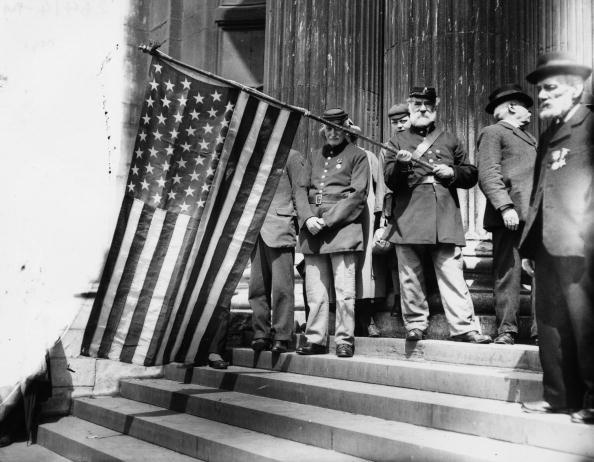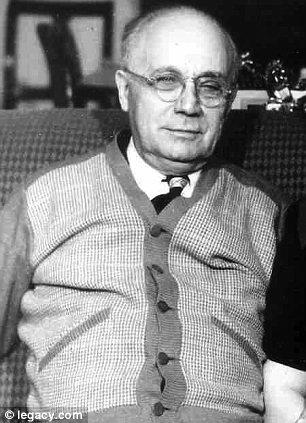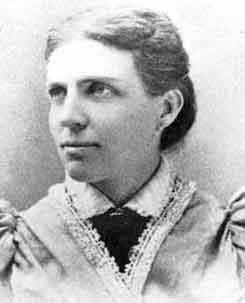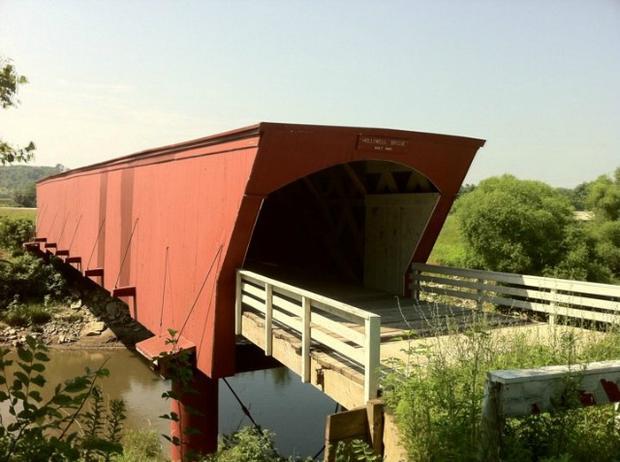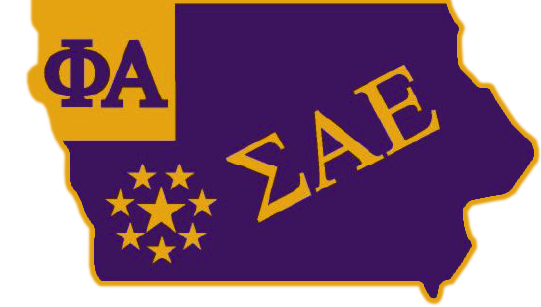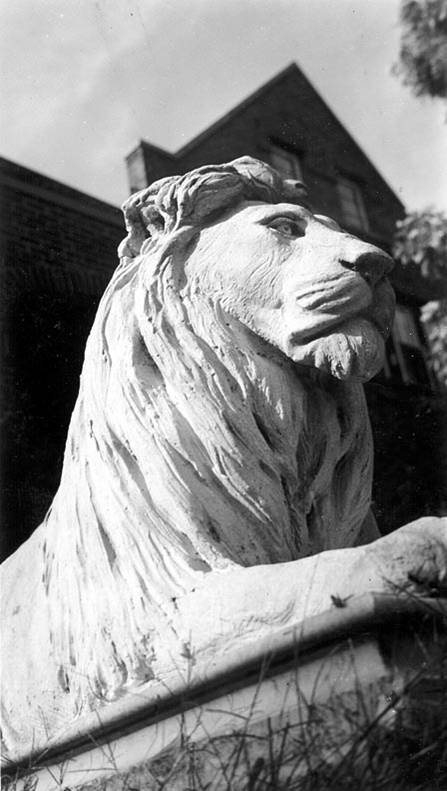SAE's Birney will provide support in recruiting the next generation of Iowa Beta men
By Greg Miller
Communications Chair and Director, Iowa Beta Alumni Association
The Sigma Alpha Epsilon Fraternity Services Center has launched its boots-on-the-ground effort to support the Iowa Beta Alumni Association in bringing the undergraduate chapter back to Iowa City this fall and reoccupying the chapter house at 302 Ridgeland Avenue (formerly known as 303 N. Riverside) in August of 2017.
For three days in late March, Aaron Birney (Toledo '14), the SAE Coordinator of Expansion, met with University of Iowa officials and several Greek-related groups in his first trip to Iowa City. The mission was to formally reintroduce SAE to the campus and announce the plan to bring the Iowa Beta chapter back to a fully chartered fraternity after completing the colonization process.
In addition, a dinner was held with Birney in the upstairs private room at the Airliner, which featured members of the Alumni Advisory Board as well as 10 young men who are among those interested in becoming refounding fathers of Iowa Beta.
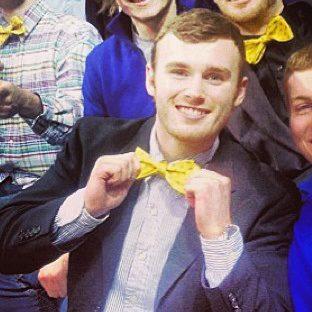
Alumni attending the event included Joe Evans (IABE ’85), Bob Hall (IABE ’66), Randy Iskowitz (IABE ’88), Ben Miller (IABE ’10), Marc Rosenow (IABE ’86) and Bobby Thompson (IABE ’07). Iskowitz and Rosenow serve as presidents of the house corporation and the Iowa Beta Alumni Association, respectively, while Thompson serves as Vice Chairman of the Alumni Advisory Board. Thompson, an Iowa City businessman, has been very active at recruiting potential new members.
Birney’s meetings included university officials who oversee the Greek system, the Interfraternity Council, Panhellenic Council and the Center for Student Involvement. He also met the young men who will form the nucleus of the Iowa Beta colony and toured the Phi Kappa Psi and DU houses as well as the SAE house, which is temporarily rented to TKE.
By meeting with various groups on campus, Birney said it helped reinforce that SAE educates its members to be virtuous, positive contributors to society while at the same time staving off any negativity toward the fraternity.
“These groups can voice how we can participate in campus activities and we can show them we are all for diversity inclusion in our membership,” he said.
He said the best recruiting method is for interested students to recruit their friends.
Given recent events in the news, as well as false allegations such as those reported by Rolling Stone magazine, several alumni expressed their concern to Birney that we sharpen our message about SAE and its position on hazing. This language will be essential for recruiting new members and their parents.
“People who are higher up in education know that when an unfortunate event occurs, it’s not what SAE teaches,” Aaron said. “But for people that don’t understand SAE or the Greek system, you have to have your stock answers ready. That is something we should have prepared.”
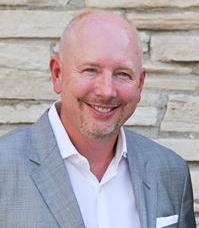
Aaron was pleased to hear that Iowa Beta’s alumni are well-organized and prepared to respond if an unfortunate incident were to ever happen.
“Your alumni involvement will totally dictate how successful the colony is and how successful the chapter needs to be,” he said. “It’s the No. 1 catalyst of keeping the group in continued excellence.”
Rosenow explained to Birney the Iowa Beta alumni support structure. The house corporation is the real estate holding and property management entity that owns and maintains the chapter house while the Alumni Association’s purpose is to develop, manage, implement and communicate programs for the education and development of undergrads and alumni. As part of this structure, a committee of the Iowa Beta Alumni Association has been formed called the “Alumni Advisory Board.” The Alumni Advisory Board is primarily responsible for the rebuilding and ongoing supervision of the undergraduate chapter. The Alumni Advisory Board is chaired by Tom Halterman (IABE ’89).
.jpg)
“I am incredibly thrilled about the chapter’s alumni organization and the amount of individuals that are in place,” Birney said. “We’ll make sure we work with the board to get things moving along.”
Birney said he enjoyed touring the SAE chapter house on Ridgeland Avenue and, according to many people he spoke to, the house looks better now than it did in recent times. He said it will be a great selling point to recruits. For the first year of its existence, Iowa Beta will need to hold meetings at the Iowa Memorial Union before reoccupying the chapter house in August 2017.
Aaron said the installation of Iowa Beta takes up about 20 percent of his time. He will not likely return to Iowa City until the fall, unless there is an unforeseen need. Mostly his duties will be to meet students, recruit new members and hold meetings with the colony. When with the colony, he will role out a strategy plan for them to follow and then return in three weeks to monitor progress and offer further suggestions. Once chapter operations are in motion, he will visit once per semester until Iowa Beta is chartered.
“It should take us three semesters or so to go through this process, which would mean that we could have SAE chartered in 2017,” he said.
He also emphasized that part of the requirements for chartering an SAE chapter is for social event management protocols and crisis management protocols to be in place.
In addition to Aaron Birney, the Fraternity Services Center will also be deploying Adam Beckerleg (Michigan State '14) to assist in the recruitment of new members and help the newly minted Iowa Beta colony mature into a fully chartered chapter of Sigma Alpha Epsilon.
Aaron and Adam will have a very busy fall in terms of helping the Alumni Advisory Board officially restart the Iowa Beta chapter. Key dates are in the chart below.
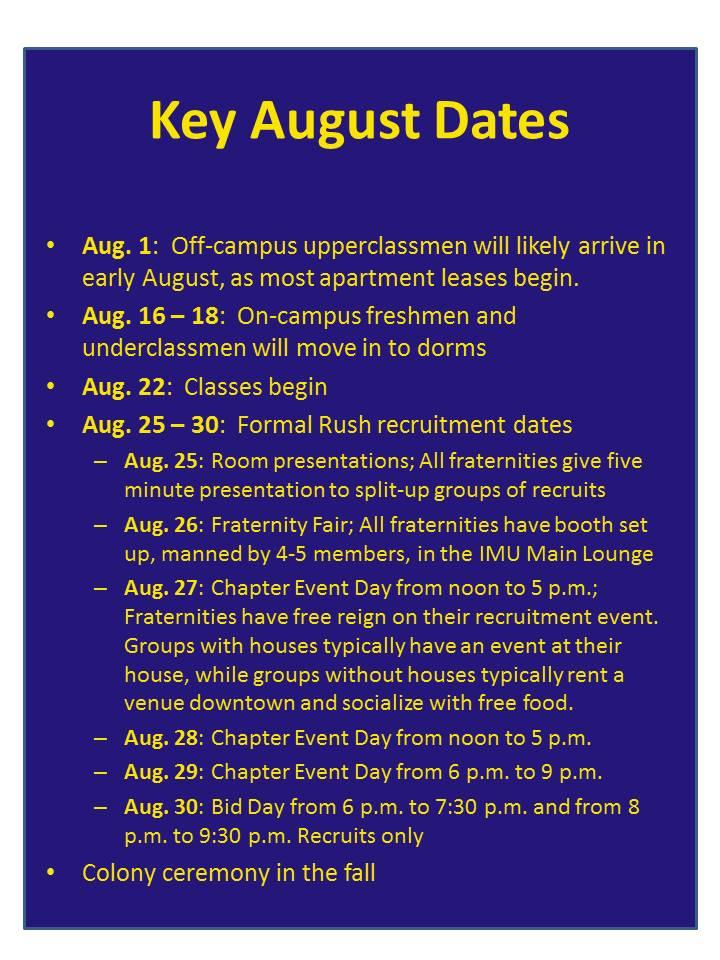
Birney said 14 of the 22 fraternities at Iowa have a house and 21 of 22 chapters host a scholarship for
incoming freshman.“I’ve been told that Phi Kappa Psi crushes everybody in summer and early recruitment because of the effectiveness of their scholarship,” he said.
“They offer 10 different $500 scholarships totaling $5,000. About 1,200 incoming male students checked ‘yes’ that they are interested in Greek life, while 600 of those students participated in formal fall recruitment. About 300 joined fraternities.”
Because of financial constraints, the Iowa Beta Alumni Association offers two "Brother Hero" scholarships to undergraduate SAEs at $500 each per year.
Birney said he uses a software program called “Chapter Builder” to host his names list of recruits. There are currently 18 individuals on Iowa Beta’s list. He also has added all of the interested men into a “Group Me” account, a mobile application for group communication.
“They’ll communicate amongst each other on there,” he said. “There are a few men who have started to take some hold of the reigns that appear to be excellent leaders and the type of brothers we’re looking for to build this.”
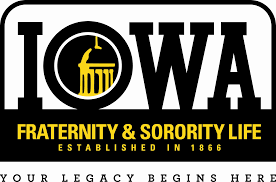
He said the average fraternity chapter size right now is 51 members and SAE has the goal of colonizing with no less than 50 percent of the average chapter size – 26 members.
“While this is enough to adequately start, we’re going to set our minimum bar at 30 members, and our goal at 40 members for Fall 2016,” he said. “SAE will not charter a group with less than the average chapter size on campus. In our return agreement with the university, we agreed that we will have a minimum of 64 men when we charter.”
Birney said his three days of meetings went very well and the Iowa Greek system looks forward to SAE’s return. Talks addressed operational issues and also issues such as diversity and inclusion.He was proud to say that the university is very happy that we have a large base of willing alumni ready to help re-build the group.
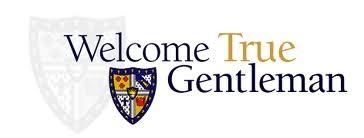
“They want to be sure that these alumni are educated properly with the current priorities and rules of fraternities and sororities and that they’re perpetuating the mission of SAE and Greek life,” he said.
Some current topics on college campuses everywhere right now are possibilities of sexual assault, racism, arrests/citations related to underage drinking, and over-consumption of alcohol.
“The entire Greek system is working on these issues, including the councils, and wants to ensure we’re educating on the tough topics as well, not just things like resume-building and networking. This wasn’t directed toward us. It was toward all of Greek life. They would like our alumni to be trained on some of these topics and lead education on such, as well as bring in experts, as our ‘True Gentleman Experience’ model does also.”
Birney said he discussed a lot of University of Iowa-specific chapter operations details with some of the students who are interested in restarting Iowa Beta. These are some of the items that will be included in future programming once we have established the colony.There has been great progress in a short period of time and the young men who will form the nucleus are model True Gentlemen. Still, a lot of work remains.
“There are a lot of moving parts here so let’s all stay informed and organized,” he concluded.
The Little Sisters of Minerva thrived at Iowa in the 1960s
By Layne Leonard
Special Contributor to the Iowa Beta Alumni Association
The Little Sisters of Minerva program started at the University of Iowa in 1961 and Molly McGuire Warner was a big part of the group that gave the SAEs a big spark on the Iowa campus.
Greeks had been gathering in Iowa City establishments such as The Airliner for years and of course, there were mixers on the social calendar. Warner was a part of the national increase in sweetheart programs (or good friends) in the late 1960s and early 70s. The Little Sisters of Minerva were SAE’s version and were established in Iowa City in 1961.
And like other sweetheart programs, their function was to help men’s fraternities with many of their everyday tasks such as fundraising and philanthropy. Little Sisters also provided study time and advice to pledges.
“I remember some of the 25 or so Little Sisters serving coffee, tea and water during rush week to help the guys out,” Warner said.
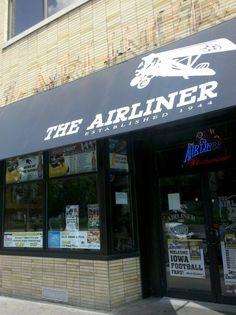
At Iowa, the Little Sisters and SAE brothers were a close-knit group.
“If you had some time to kill between classes, there was always an SAE table at the Airliner and we were always welcomed,” she said.
The Little Sisters constantly gave the men in the SAE house new people with whom they could develop relationships.
Warner joined in the fall of 1962 after graduating from Ames High School in 1961. She pledged to Kappa Alpha Theta her freshman year and focused her studies to become a school teacher. She soon met Dinni Moore and Karen Jorgensen in her sorority who were already SAE Little Sisters.
Dating situations in the Theta house made it easy for Molly to meet SAE brothers before she was a Little Sister. She was also heavily influenced to join by her sister, Julie McGuire, who was dating a SAE brother, Bob Benz (IABE ’60) at the time. Because of mutual friends in the SAE house, she decided that she would give the Little Sisters a go.
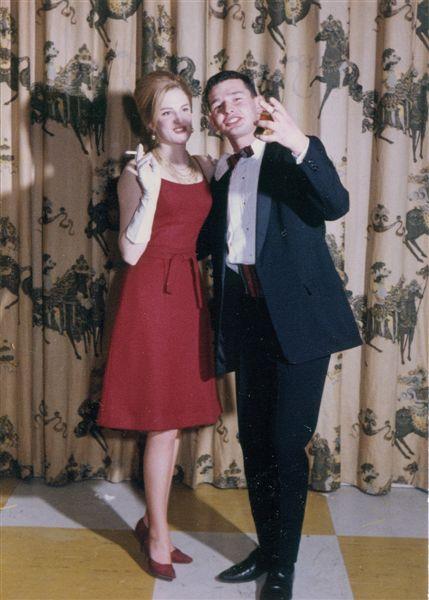
“One of the constant traditions of the Little Sisters is that we were invited to the SAE house for dinner one night a month,” Warner said. “They were very fun dinner parties and I’ll never forget the wonderful singing.”
Warner said one of her fondest memories was at the 1964 winter formal when legendary Chicago Blues singer Bo Diddley was booked as the musical act.
“The part I remember is him saying that he wouldn't get up and perform until he got his money!” she laughed.
The more casual parties would usually take place at the SAE house after the Iowa football games where everyone would meet up. Head coach Forest Evashevski’s teams were very competitive and usually nationally ranked.
“I remember walking to the football games from my sorority house across the bridge to meet up at the SAE house and then we’d continue on to the game,” she said. “Afterward, we would walk back to the house and there would be a party.”
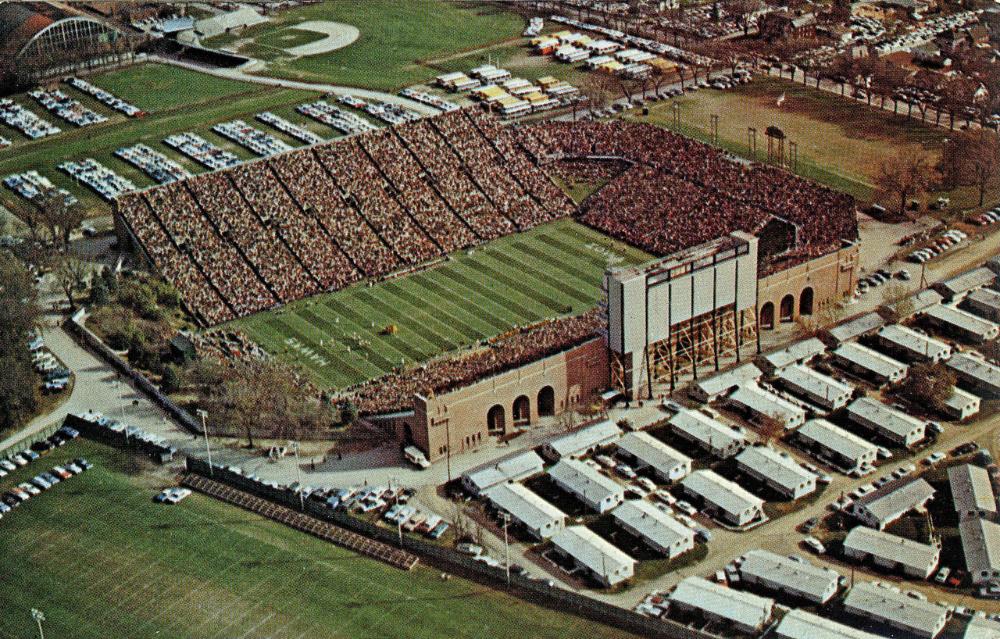
The Little Sisters also paired up with an SAE “little brother” – a pledge - to help as a tutor or study partner for a few hours a week. Warner’s first little brother in this program was James “Scrap” O’Donnell (IABE ’65).
They became close after O’Donnell transferred his junior year from St. Ambrose in Davenport, IA.Although the Little Sisters program was a good way to meet a partner, it was made clear that you didn't have to date a man in the SAE house.
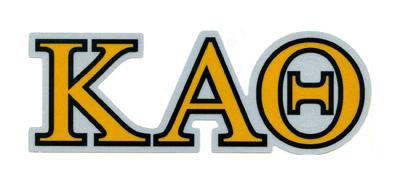
“If one of the sisters wanted to go to a formal, they could and we had the freedom to bring our own date,” she explained. “But that rarely happened because the SAEs were so great…why bring anyone else?
And if we didn't have a date for the more formal parties, we would usually go with an SAE brother.”
In the Theta house, responsibilities of the sorority trumped everything else so some Little Sister activities had to be pushed aside.
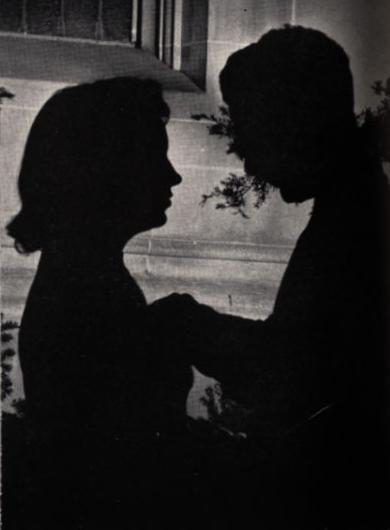
“I was an above-average student and graduated with a 3.3 (grade-point average),” Warner said, “But some would probably even consider me a party girl because I wanted to do everything involved in both my own house and the SAE Little Sisters activities.”
Warner said the pinning process with the SAEs also was a very exciting ceremony. The first step for a couple who were serious was to be “lavaliered”, or given an SAE necklace, and that is when you would be considered in Warner’s words, “mostly official.”
The next phase in a committed relationship was the pinning ceremony. The men typically gathered to serenade the woman to build up the emotional level of the couple. Songs such as "Violet" and "You are the Fairest" would have everyone buzzing with excitement.
“Then you’d hug and be considered to be dating exclusively,” said Warner.

Warner went through the ceremony herself when she was pinned to Bob Robertson (IABE ’64). But in time, they both discovered that it would it was in their best interest to unpin.
“I didn't want to be married too early and wanted to focus on my career for the first few years after graduation,” Warner said. “There was still a lot of future left for both of us and we both recognized that.”
Warner was active in the Little Sisters program her first three years at Iowa but became increasingly involved in the student teaching program in Cedar Rapids. This resulted in her becoming inactive her senior year in order to focus on her career. After graduation Warner went to California seeking a job in education and never left.
“I bought a car with a friend the day after graduation, drove to California, got a teaching job and haven't left since” she said.
At that time Warner said she “got four job offers in threee days and could stop at a pay phone, make a call and get a job offer. The school administrators in California LOVED the U. of Iowa degree.”
She took a job in Oceanside, CA where her cousin and SAE alumni, Jim Hise (IABE '63), was stationed in the Navy.
“He was a lot of the reason why I chose the job in Oceanside; we were very close,”said Warner.
When she started her teaching career, she soon met Jeff Warner, and in two years, they were wed. The happy union has now lasted 47 years.
She taught all grades before the couple retired in Fort Bragg, CA. Because the relationship between O’Donnell and Molly Warner had solidified during their time at Iowa, Jeff and O’Donnell became friends during Marine Corps Officer Training. He eventually asked O’Donnell to serve as the best man in the Warner wedding.
Another marriage that stemmed from the Little Sisters program was that of Dinni and Sid Moore (IABE ’63). The two were pinned at Iowa and ended up marrying a few years later. Jorgensen married Howard Kennedy (IABE ’62). Molly’s other SAE pal, Jay Orr (IABE '66), married her cousin and a Little Sister of Minerva at Iowa State, Ann Crispin. Both the Warners and the Moores have attended Iowa Beta reunions in the last few years.
For more than three decades, The Little Sisters of Minerva were an integral part of life as an Iowa Beta SAE. Unfortunately, The Little Sisters of Minerva, along with many other sweetheart programs, no longer exist today. Yet, it is clearly evident that friendships evolved into strong bonds, and in some cases, marriages lasting a multitude of decades.
QUIZ ANSWER: UT head coach Mack Brown
William Mack Brown finished his NCAA football career as head football coach of the Texas Longhorns football team of the University of Texas at Austin.
Prior to Texas, Brown was head coach at Appalachian State, Tulane, and North Carolina. Brown (born August 27, 1951) is credited with revitalizing the Texas and North Carolina football programs. The Longhorns beat University of Southern California in the 2006 Rose Bowl, Ohio State at The Horseshoe in September 2005, and division rival Oklahoma in 1998, 1999, 2005, 2006, 2008, 2009, and 2013. The 2005 season was capped off by victories over Colorado and USC to win the Big 12 Conference and national championships, respectively. In 2006 he was awarded the Paul "Bear" Bryant Award for "Coach of the Year."On November 27, 2008 Brown achieved his 200th career win, making him the first Texas coach to reach that mark.
On December 14, 2013, Brown informed the team that he would resign after the Alamo Bowl.
Did You Know?
Here are some fun facts about the state of Iowa
Most people think of Iowa as one of those states they fly over or drive through on their way to a more interesting destination. But there’s a lot more to this Midwestern state than corn fields and hogs.
1. What “Iowa” really means has long been a subject of debate. The state was named after the Ioway people, a Native American tribe that once inhabited the area. And one account says it was coined when a tribe of Native Americans looked over the land for the first time and proclaimed it “Iowa, Iowa, Iowa,” which meant “beautiful, beautiful, beautiful.” Then there’s the tale that says it’s a variation on the French word “Ayuhwa,” which means “sleepy ones”—something the Dakota Sioux tribe called the Ioway Nation.
2. It's home to the house in Grant Wood's American Gothic. Wood sketched the house when he passed through Iowa, in 1930, where he admired the contradiction of the modest Midwestern house with the stylish windows. He painted the home in his studio, then added the iconic-looking man and woman, who were depictions of his dentist and his sister, respectively.
3. There are more hogs than humans in Iowa. As of 2013, the state’s hog population was 21.2 million oinkers, whereas the human population was just north of three million.
4. Iowa and Missouri almost went to war in the 1830s. Because of a surveying mistake, Iowa and Missouri were ready tocome to blows a few years. One surveyor's boundary line was four miles further north on the east side than the west; another official was sent to resurvey, but his line was uneven to the tune of 2,600 acres. When a Missouri tax collector tried to cash in from citizens who lived in the disputed acres, he was arrested by the Iowans. The governors of each state threatened each other with combat, with militias and volunteers called to gather at the border. Before any shots were fired, the federal government stepped in and literally drew the "Sullivan Line." John Sullivan was the surveyor. The conflict is often referred to as “The Honey War” because a group of trees containing a large number of honeybees was destroyed during the dispute.
5. Des Moines is the place where Ozzy Osbourne's infamous bat incident happened. On January 20, 1982, a 17-year-old fan named Mark Neal threw a bat on stage at a Black Sabbath concert. Thinking it was a fake, Ozzy picked up the critter and chomped down—which is when he realized it was the real deal. He immediately went to the hospital for rabies shots after the gig.
6. Iowa had only been a state for 15 years when the Civil War started with population of just 600,000. Though the 76,534 Iowan men who served in the Union may seem like small potatoes compared to contributions from other states, no other state had a higher percentage of its male population serve. Iowa even had a regiment called the “Greybeards” because the men were all considered elderly, including one soldier in his 80s.
7. We've all either heard and/or said the phrase "the greatest thing since sliced bread." It turns out we can thank Davenport-born Otto Frederick Rohwedder for all those pre-cut loaves. Rohwedder was apparently fed up with trying to cram hand-sliced pieces of bread into a toaster, so he invented a device that would cut bread into consistently-sized slices in 1912. Sadly, Rohwedder's fantastic invention was destroyed in a fire before it could be unleashed on the world. It was in 1928 that he modified his contraption and made sliced bread commercially available.
8. When it comes to civil rights, Iowa has always been a few steps out front. Married women were granted proper y rights in 1851, and in 1869, the Iowa Supreme Court ruled that women should be allowed to practice law, making Iowan Arabella Mansfield the first U.S. female lawyer. Iowa also was a leader on school desegregation: The Iowa Supreme Court declared that “separate but equal” schools were unlawful back in 1868, 85 years before the Supreme Court agreed in 1954 with Brown v. Board of Education.
9. Bones of woolly mammoth are plentiful. The prehistoric pachyderms once lived in the area, so it's not that unusual for residents to happen onto their remains. Mahaska County is a place where people seem to find them in more concentrated numbers by accident.
10. More than 25 percent of the state’s electricity comes from wind power. That’s the result of more than 3,200 wind turbines, the highest concentration in the country. The state's goal is to increase that to 40 percent by 2020.
11. Clear Lake, Iowa, is where "the music died." Buddy Holly, Ritchie Valens, and J.P. “The Big Bopper” Richardson perished when their plane crashed into a field there in 1959. Waylon Jennings, who was part of Holly's band at the time, was supposed to be on the flight, but offered his seat to an ailing Richardson. Jennings took a bus instead, and Holly jokingly told him he hoped he would freeze on the bus. "I hope your ol' plane crashes," Jennings joked back—and it haunted him ever since. "God almighty, for years I thought I caused it," he later said.
12. Though the 1995 movie was based on a book of fiction by Robert James Waller, the setting for The Bridges of Madison County is real. There were originally 19 covered bridges from the 1800s in the county, but only six are in existence. The one shown above is the Holliwell Bridge that was seen frequently in the movie.
13. Marion Morrison, or John Wayne to most of us, was born in Winterset, Iowa, in 1907. His family moved to California when he was just six. Donna Mullenger was born fourteen years later and 120 miles to the northwest in Denison, Iowa. She changed her name in 1941 to Donna Reed when she joined MGM.
14. Peru, Iowa is where the Red Delicious apple began. But if you agree with most people that this variety is nowhere near as scrumptious as the name implies, don’t blame Iowa. Today’s variety bears little resemblance to the 1872 original, which was a "round, blushed yellow fruit of surpassing sweetness."
15. The ghost town of Preparation, Iowa, was once home to a clan of Mormons. In 1853, a man named Charles B. Thompson said the "Spirit" told him to split off from his group of Mormons who were moving to Utah. About 60 families decided to stay with him, and together they founded the town of Preparation, which they said was their "School of Preparation for the Life Beyond." Things were fine until Thompson received another "message" from a spirit that told all of the families in town to give all of their deeds and possessions to him. Many did—and then realized they had been scammed. Some of those cheated set out after their former leader, who narrowly escaped by hiding in a friend's attic. Thompson hightailed it out of Iowa while much of his bitter former followers went on to Utah.The 344 acres that once housed the town is now Preparation Canyon State Park.
We're Global!
The Iowa Beta Alumni Association is global!
The Iowa Beta Alumni Association has been sending monthly e-newsletters to alumni for whom we have valid email addresses for nearly four years.
In that time, brothers from all over the world have been keeping up to date on the latest Iowa Beta developments.
In addition to the United States, Iowa Beta brothers have been reading the newsletters in the following countries:
- Japan
- Germany
- Spain
- Canada
- Mexico
- United Kingdom
- Portugal
- Israel
- Switzerland
- Dominican Republic
- Philippines
- Thailand
- Italy
- Jamaica
- Russia
- Hong Kong
- France
- Denmark
- Greece
Thank you for your support!
Disclaimer: All images used by the Iowa Beta Alumni Association (the "Alumni Association") are either owned by the Alumni Association, authorized for use by the Alumni Association or are used under Fair Use for education, information and news purposes by a 501(c)(3) nonprofit organization. If you are the copyright holder of a certain image and wish us to remove that image, please contact us at the email address below.
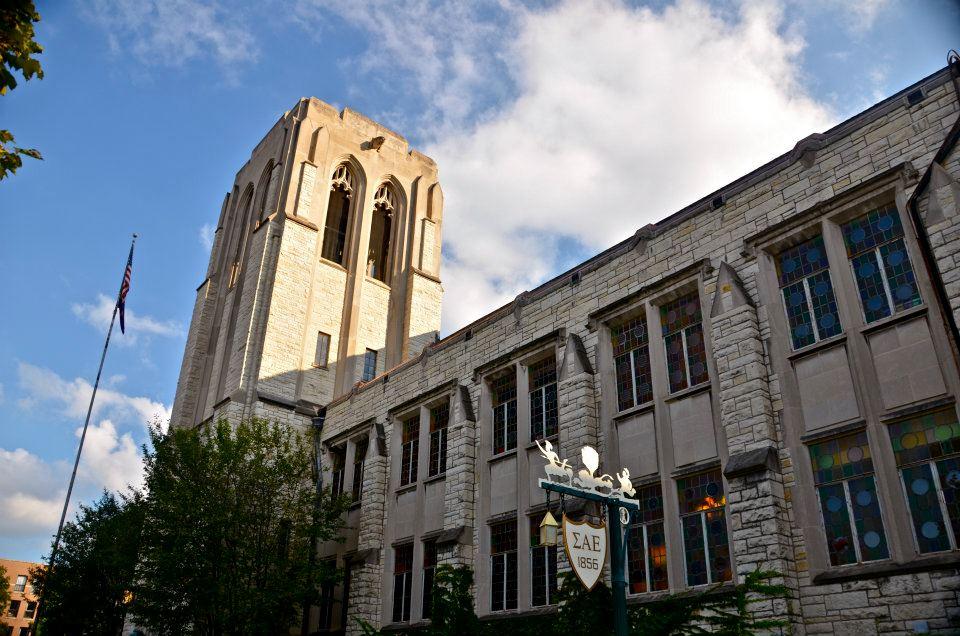
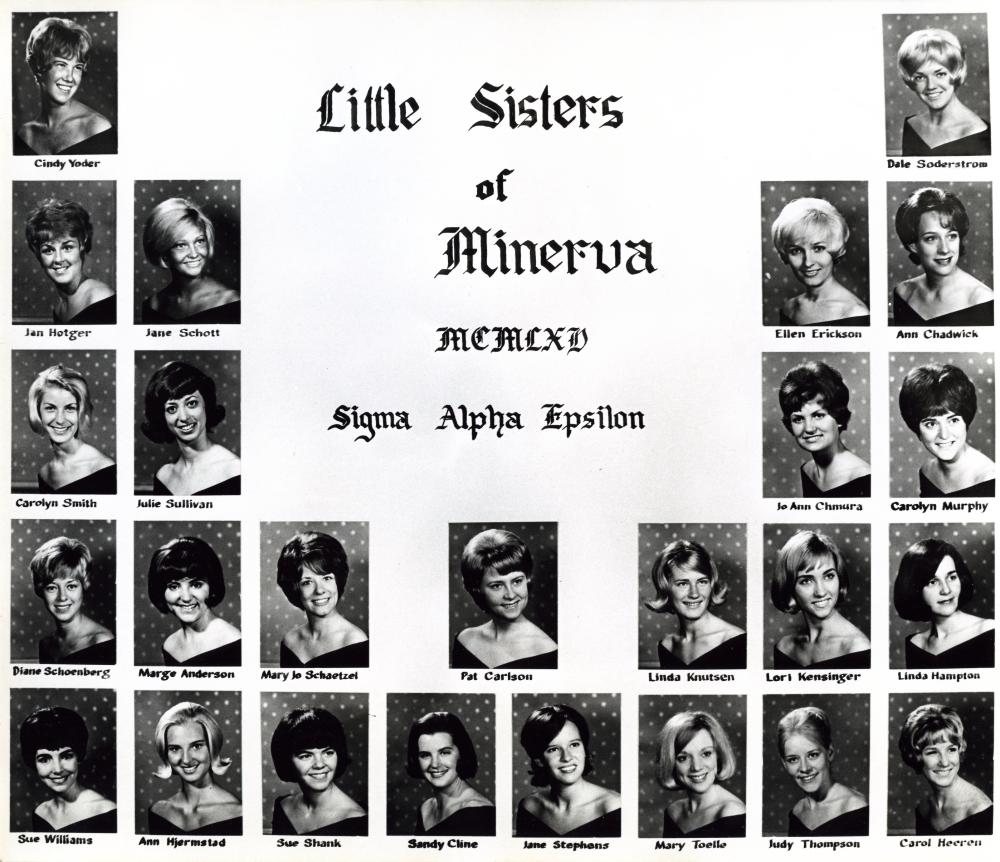


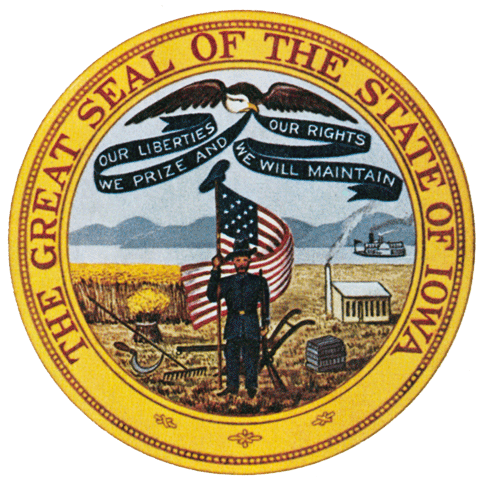
.jpg)



